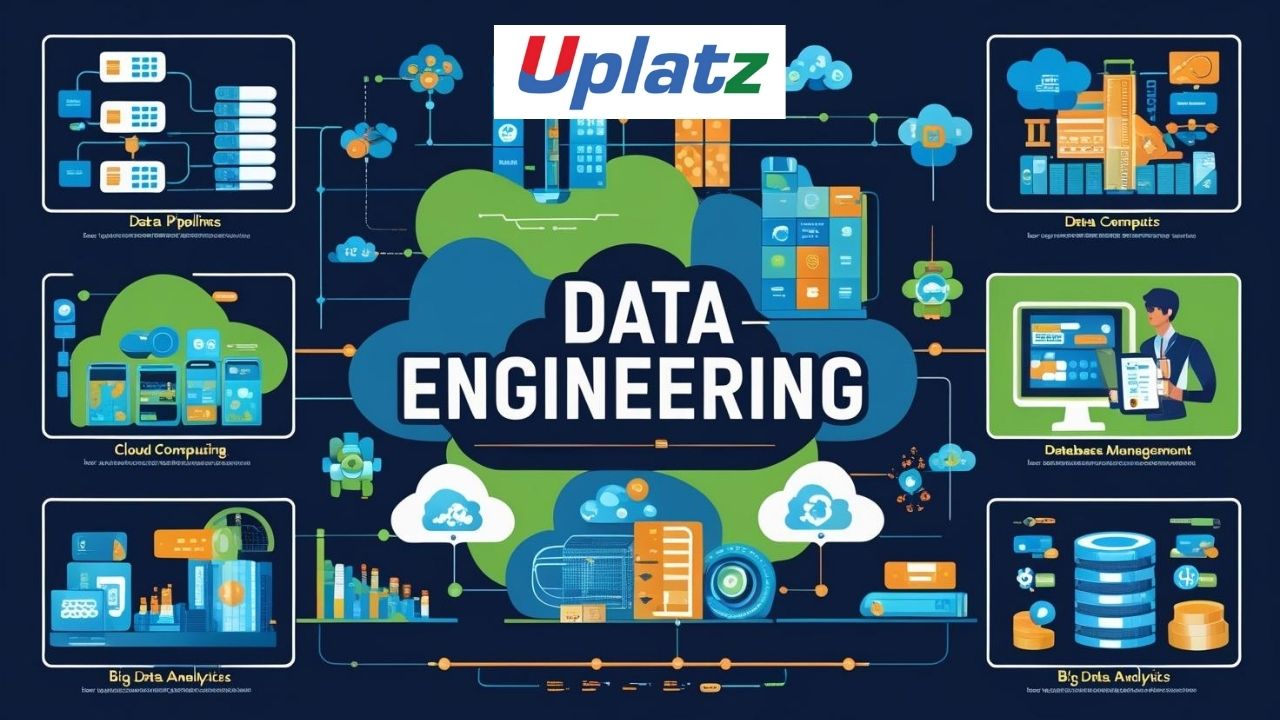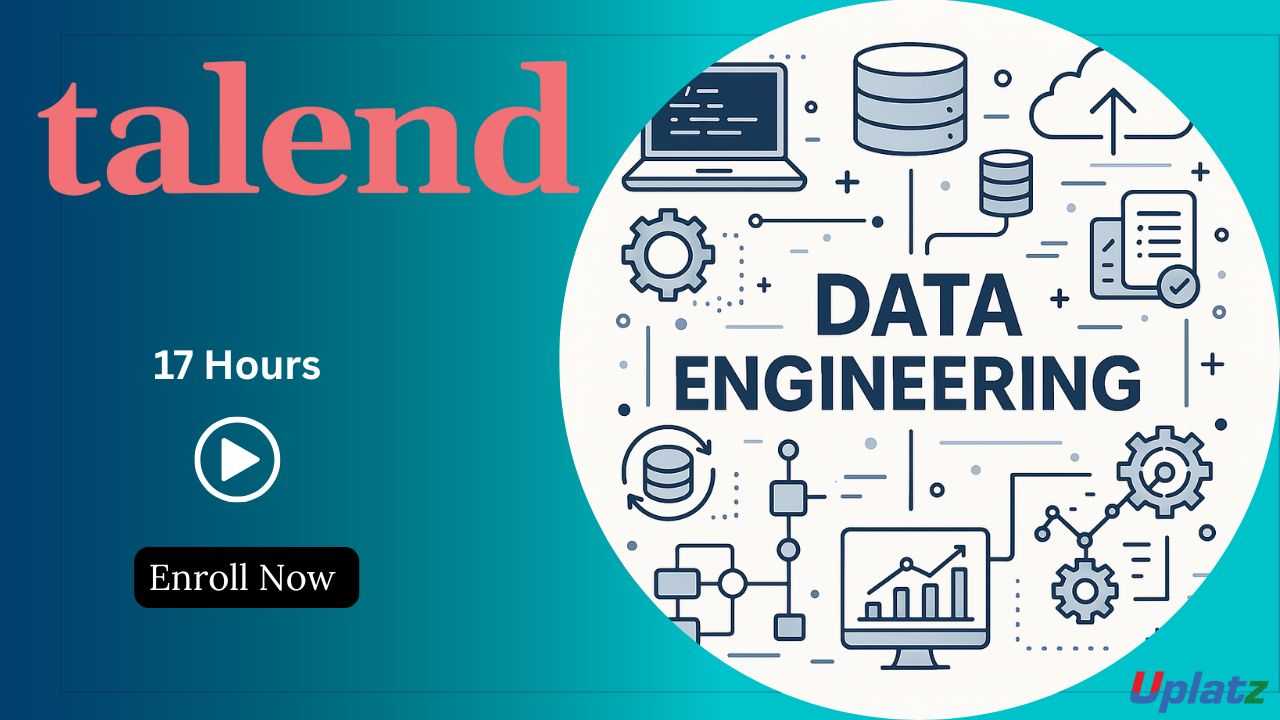Marquez
Master metadata lineage and job tracking with Marquez to ensure transparency, reproducibility, and observability in your data pipelines.Preview Marquez course
Price Match Guarantee Full Lifetime Access Access on any Device Technical Support Secure Checkout Course Completion Certificate 96% Started a new career
BUY THIS COURSE (
96% Started a new career
BUY THIS COURSE (GBP 12 GBP 29 )-
 86% Got a pay increase and promotion
86% Got a pay increase and promotion
Students also bought -
-

- Data Engineering
- 10 Hours
- GBP 12
- 10 Learners
-

- Data Governance
- 4 Hours
- GBP 12
- 276 Learners
-

- Data Engineering with Talend
- 17 Hours
- GBP 12
- 540 Learners

-
Understand Marquez architecture and how it supports OpenLineage
-
Capture metadata from pipelines running in Airflow, Spark, dbt, and others
-
Build and explore lineage graphs to track data transformations
-
Identify and debug broken or stale data jobs
-
Ensure auditability and reproducibility of data workflows
-
Monitor and visualize job runs, datasets, and dependencies in real time
-
Data Engineers and Platform Engineers building pipeline observability
-
Analytics Engineers managing dbt-based transformation logic
-
Governance and Compliance Teams tracking lineage for audits
-
DevOps and SREs supporting stable and transparent data infrastructure
-
Open-source Enthusiasts exploring metadata standards and lineage tracking
-
Set up a local Marquez instance or use Docker Compose to practice.
-
Integrate Marquez with existing tools like Airflow or dbt.
-
Track jobs and datasets through sample projects and workflows.
-
Experiment with OpenLineage events and APIs for custom integration.
-
Document lineage scenarios and how they help with debugging and trust.
Course/Topic 1 - Coming Soon
-
The videos for this course are being recorded freshly and should be available in a few days. Please contact info@uplatz.com to know the exact date of the release of this course.
By the end of this course, you will be able to:
-
Deploy and configure Marquez in a local or cloud environment
-
Understand key concepts: datasets, jobs, runs, namespaces
-
Connect Marquez to orchestration engines via OpenLineage
-
Visualize end-to-end data flow and dependencies
-
Monitor job execution status and data freshness
-
Integrate with metadata platforms and governance tools
Course Syllabus
Module 1: Introduction to Marquez and Data Lineage
-
Importance of Data Lineage
-
What is Marquez? Overview and Use Cases
Module 2: Marquez Architecture and Concepts
-
Jobs, Datasets, Namespaces, Runs
-
REST API and Event Model
Module 3: Setting Up Marquez
-
Installing with Docker Compose
-
Connecting to PostgreSQL and Web UI
Module 4: OpenLineage Integration
-
Overview of OpenLineage Standard
-
Emitting Lineage Events from Pipelines
-
Schema and Compatibility
Module 5: Integrating Marquez with Workflow Tools
-
Apache Airflow Integration
-
dbt and Spark OpenLineage Plugins
-
Manual Event Emission
Module 6: Visualizing and Debugging Lineage
-
Lineage Graph UI
-
Upstream/Downstream Relationships
-
Job Run Status and Failures
Module 7: Advanced Use Cases
-
Impact Analysis and Job Dependency Mapping
-
Root Cause Tracing for Broken Pipelines
-
Supporting DataOps and SRE Processes
Module 8: Marquez Interview Questions & Answers
On successful completion, you will receive a Uplatz Certificate of Completion in Marquez and OpenLineage. This certificate confirms your expertise in open-source data lineage tools, integration with orchestration systems, and implementation of metadata observability in production pipelines.
Marquez skills prepare you for roles such as:
-
Data Engineer – Metadata & Lineage
-
Analytics Engineer – Data Observability
-
Data Platform Engineer
-
Compliance and Audit Data Analyst
-
MLOps/DataOps Engineer
With the rise of complex pipelines, lineage tracking is increasingly valued across finance, healthcare, e-commerce, and big tech sectors.
-
What is Marquez and what does it do?
Answer: Marquez is an open-source metadata service for collecting, storing, and visualizing data lineage and job metadata. It enables data observability across pipeline tools. -
What is OpenLineage and how is it related to Marquez?
Answer: OpenLineage is an open standard for metadata tracking in data workflows. Marquez is the reference implementation that consumes and displays OpenLineage events. -
What are the core entities in Marquez?
Answer: Key entities include Jobs, Datasets, Namespaces, and Runs. Jobs produce or consume datasets, and each execution is tracked as a Run. -
How does Marquez help in debugging data pipelines?
Answer: Marquez captures lineage data and job run status, helping engineers trace failures back to their source, understand dependencies, and resolve issues efficiently. -
Can Marquez be used with Airflow?
Answer: Yes. Marquez integrates with Airflow through the OpenLineage plugin, automatically emitting metadata events as tasks execute. -
How is lineage visualized in Marquez?
Answer: The Marquez UI provides a lineage graph showing upstream and downstream datasets, job dependencies, and run statuses. -
What is a namespace in Marquez?
Answer: A namespace is a logical grouping of jobs and datasets—typically representing a team, department, or environment (e.g., dev vs prod). -
How does Marquez support compliance and audit?
Answer: By maintaining a record of job runs, dataset changes, and data flow, Marquez ensures auditability and helps meet compliance requirements like GDPR or SOX. -
Is Marquez scalable for production use?
Answer: Yes. Marquez is lightweight and scalable, especially when paired with a dedicated PostgreSQL backend and deployed in distributed environments using Docker or Kubernetes. -
What tools can send lineage data to Marquez?
Answer: Tools like Apache Airflow, dbt, Apache Spark, and custom scripts can emit OpenLineage events to Marquez via official or community connectors.









